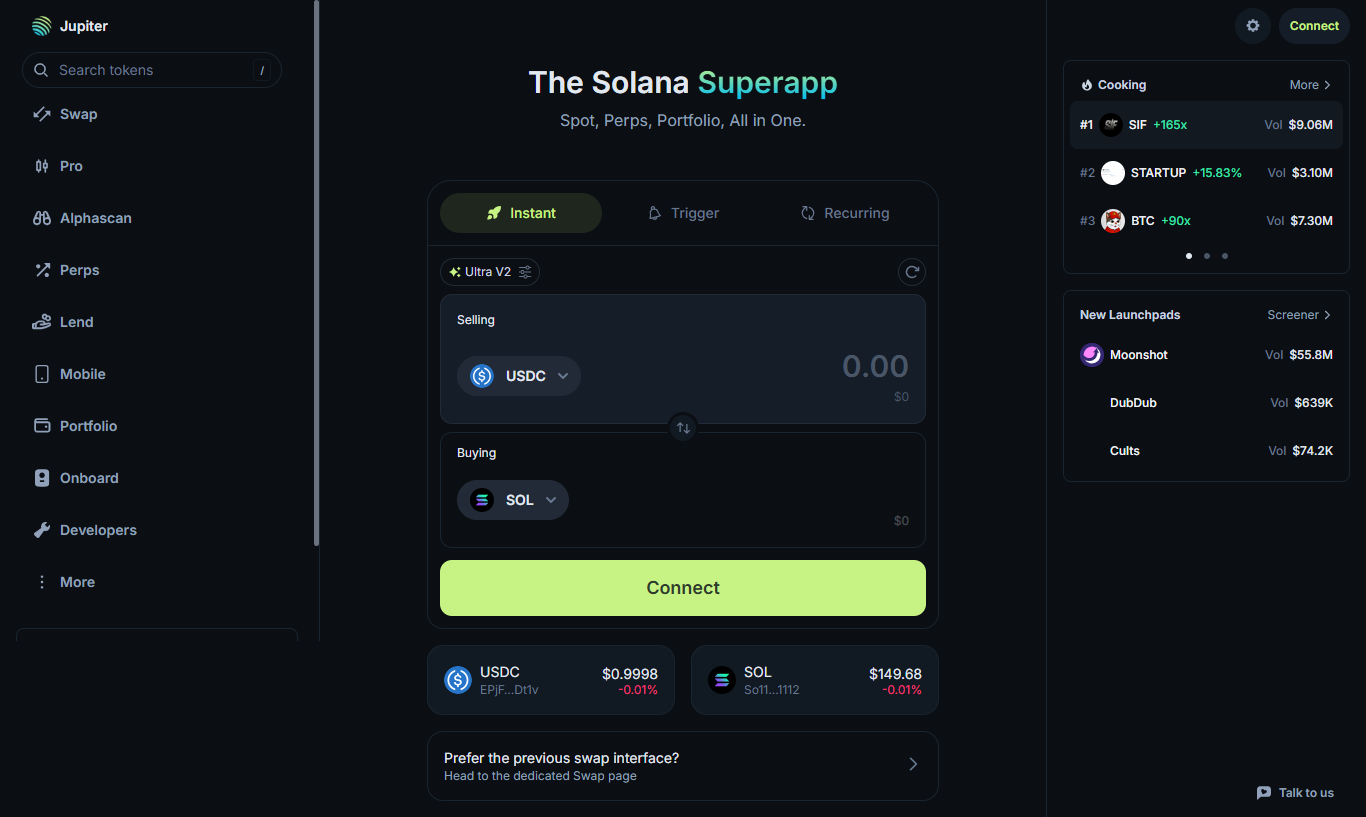Jupiter Exchange: The Future of Cross-Chain Crypto Trading
As the world of decentralized finance (DeFi) continues to expand, Jupiter Exchange has emerged as a game-changing platform for crypto traders seeking seamless, cross-chain experiences. Built on the Solana blockchain, Jupiter is not just another decentralized exchange (DEX)—it's a powerful liquidity aggregator that ensures users always get the best rates when swapping tokens.
In this blog, we’ll explore what makes Jupiter Exchange stand out, how it works, and why it’s becoming the go-to tool for serious DeFi enthusiasts.
What Is Jupiter Exchange?
Jupiter Exchange is a decentralized liquidity aggregator built for the Solana ecosystem. It integrates with various liquidity sources and DEXs to help users execute token swaps with optimal rates, minimal slippage, and faster settlement times.
Unlike traditional DEXs that rely on a single liquidity pool, Jupiter scans multiple platforms in real time to route trades through the best possible path. The result? Better prices, faster swaps, and a smoother trading experience.
Key Features of Jupiter Exchange
1. Best Price Execution
Jupiter’s smart routing engine automatically identifies the most cost-effective path for your trade by comparing multiple DEXs and liquidity providers. It minimizes slippage and maximizes value on every swap.
2. Cross-Chain Compatibility
With integrations beyond Solana in development, Jupiter is building towards a multi-chain future. Users can expect streamlined bridging solutions and token swaps across ecosystems like Ethereum, BNB Chain, and more.
3. User-Friendly Interface
The platform’s minimalist, intuitive design makes it easy for both beginners and experienced traders to swap tokens, monitor gas fees, and track transactions—all in one place.
4. Fast & Low-Cost Transactions
Thanks to the high-performance capabilities of Solana, Jupiter offers lightning-fast transaction speeds with extremely low fees, making it ideal for high-frequency traders and DeFi users on a budget.
5. Integrated Tools
Jupiter isn’t just about swaps. It also provides charting tools, swap history, price impact analysis, and API access for developers—making it a full-featured DeFi hub.
How to Use Jupiter Exchange
Getting started with Jupiter is simple:
- Connect Your Wallet – Use a Solana-compatible wallet such as Phantom or Solflare.
- Choose Tokens – Select the token you want to swap and the one you want to receive.
- Review Swap Route – Jupiter automatically shows you the best rate from different DEXs.
- Confirm Transaction – Approve the transaction in your wallet, and your swap is done in seconds.
There’s no sign-up, no KYC, and no personal information required—making it fully non-custodial and decentralized.
Why Traders Are Choosing Jupiter Exchange
With more DeFi users prioritizing control, privacy, and cost-efficiency, Jupiter Exchange has become a preferred choice because of its speed, transparency, and powerful routing logic. It empowers users with:
- Real-time swap optimization
- Freedom from centralized intermediaries
- A growing set of trading tools
- Future support for cross-chain liquidity
Whether you're swapping stablecoins, trading Solana-based tokens, or managing liquidity, Jupiter ensures you do it smarter and cheaper.
Security and Reliability
Jupiter has gained the trust of the DeFi community by consistently prioritizing security and transparency. It does not hold user funds and operates entirely through smart contracts. The platform’s code is open-source and regularly audited to prevent vulnerabilities and exploits.
Future of Jupiter Exchange
Jupiter is continuously evolving. Plans for integrating with other blockchains, supporting perpetual swaps, and launching governance features are on the roadmap. As more users enter the DeFi space, Jupiter aims to be the backbone of seamless, multi-chain token swapping.
With the launch of the JUP token and its growing community involvement, Jupiter is laying the foundation for a community-driven DEX aggregator that’s fast, fair, and future-ready.
Final Thoughts
In a decentralized world where speed, cost, and reliability matter, Jupiter Exchange stands tall as one of the most promising platforms for cross-chain token swaps. Whether you're new to crypto or a DeFi veteran, Jupiter makes trading easier, smarter, and more profitable.
Try it out today and experience DeFi the way it was meant to be—fast, secure, and fully decentralized.
Made in Typedream
